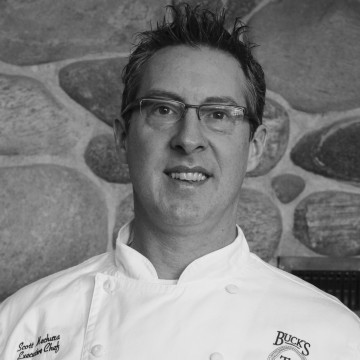
By Scott MechuraEBS Food Columnist
Not too long ago, I was listening to a podcast by Mike Rowe. His interview really got my attention. He spoke at length about his childhood, upbringing, and how being a television host is but one of several occupations he has held.
It was his delve into the “blue collar” world that particularly interested me. In this podcast, he spoke with some fairly heavy opinions and viewpoints as to the fate and future of today’s youth—what jobs aren’t getting done, what industries are failing at an alarming rate, as well as the workforce in general.
As I listened, I was reminded of a conversation I had with friend and Montana Ale Works owner Roth Jordan. We were conversing not too long ago about how the profession of line cook is a very respectable job and profession as a whole.
I thought of this conversation again the other day as I watched our cooks show up for their shift, don their whites, open their tool kit just as a carpenter might, look at their prep list they wrote the night before in preparation for the next day as they sigh at the sight of said list that has seemingly grown overnight, and put their head down and work. I can’t help but find a little bit of respect for them each and every day.
Buck’s is a delicate animal. That is to say that our volume, history, quality (hopefully), atmosphere, culture, and dependability may seem, on the outside, to be bestowed on us as though we were gifted these things. I am here to tell you that every day is a grind for us. There are no easy days. And there certainly aren’t any “down days.”
And one of the foundations of our success is a position that is ordinarily referred to as the line cook.
For decades, I have either been a line cook, or overseen them in droves. And I can tell you this: it is a challenging profession that requires a certain set of physical and mental skills, the likes of which few of us—when the rubber meets the road—have the skills to perform, even for one day.
A line cook must first have the mental and physical stamina to withstand the most arduous of job descriptions. To be able to perform day-in and day-out, without complaint or waiver, no matter the challenge thrown at them.
A line cook must possess math skills as they scale recipes up or down, according to business predictions.
They need incredible hand-eye coordination as they wield as many tools on a given day as a surgeon.
A line cook knows that they are the last line of defense. By that I mean—to put it in military terms—they are the front line, both figuratively and literally. Successful plans and ideas begin with days of planning, but much of that success or failure ends with them.
What is most impressive to me as I watch them perform regularly is the dual challenge of mental and physical effort for hours on end. Working with hot oil, flames, searing hot sauté pans, ambient heat, on their feet, clanging metal, multiple shouting voices, and machinery, they just find a way to push forward day-in and day-out.
If you do not believe that these men and women aren’t the backbone and soul of any quality restaurant, remember the words of John Bernet, one of America’s best railroad men: “People are more important than tools. If you don’t believe so, put a good tool in the hands of a poor workman.”
Scott Mechura has spent a life in the hospitality industry. He is a former certified beer judge and currently the Executive Chef at Buck’s T-4 Lodge in Big Sky.













